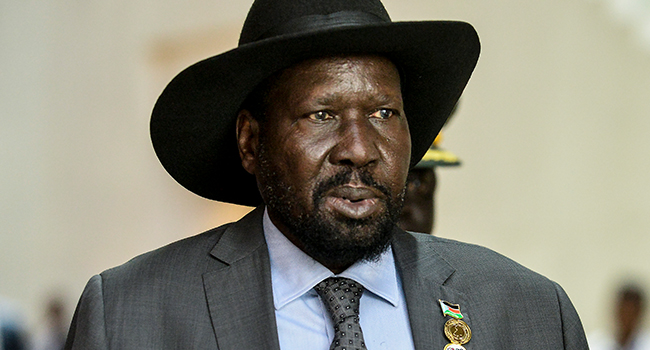PAST PRESIDENTS OF SUDAN TILL DATE
INTRODUCTION
This article lists the heads of state of Sudan since the country’s independence in 1956.The office of Prime Minister was abolished after the 1989 coup d’état, and reestablished in 2017 when Bakri Hassan Saleh was appointed Prime Minister by President Omar al-Bashir.
HISTORY OF THE OFFICE
Since independence was proclaimed on 1 January 1956, six individuals (and three multi-member sovereignty councils) have served as head of state of Sudan, currently under the title President of the Republic of the Sudan. Prior to independence, Sudan was governed as a condominium by Egypt and the United Kingdom, under the name Anglo-Egyptian Sudan. As such, executive power was vested in a diarchy consisting of both countries’ heads of state – at the time of independence, the Queen of the United Kingdom (Elizabeth II) and the Egyptian Revolutionary Command Council (headed by Gamal Abdel Nasser). Immediately following independence, the role of head of state was filled by a five-member Sovereignty Council, with rival nationalist factions unable to agree on a single candidate. In November 1958, General Ibrahim Abboud led a military coup d’état, assuming the role of head of state as Chairman of the Supreme Council. Assuming the title of president in 1964, he resigned later that year due to general discontent around the rule of the military regime. Abboud was succeeded by a senior civil servant, Sirr Al-Khatim Al-Khalifa, who served as acting president for 18 days before transferring executive authority to a Committee of Sovereignty.
Read: REGIONS OF SUDAN
The Transitional Military Council was replaced with the Transitional Sovereignty Council on 20 August 2019, under the chairmanship of al-Burhan. The Sovereignty Council, an 11-member civilian-military collective head of state, is designed to lead the country for 39 months in the transition to democracy, which is supposed to end with the next general election. The Transitional Sovereignty Council was dissolved by al-Burhan on 25 October 2021, following a coup d’état. Al-Burhan reinstated it on 11 November 2021, with some members replaced.
Abdalla Hamdok was appointed as Prime Minister by the Transitional Sovereignty Council on 21 August 2019, as part of the country’s transition to democracy. On 25 October 2021, Hamdok was deposed and placed under house arrest, following a coup d’état. On 21 November 2021, Hamdok was reinstated as prime minister as part of an agreement with the military. On 2 January 2022, Hamdok resigned as prime minister.
TITLES OF HEADS OF STATE
- 1956–1958: Sovereignty Council
- 1958–1964: Chairman of the Supreme Council
- 1964: President
- 1964–1965: Committees of Sovereignty
- 1965–1969: Chairman of the Sovereignty Council
- 1969–1971: Chairman of the National Revolutionary Command Council
- 1971–1985: President
- 1985: Commander-in-Chief
- 1985–1986: Chairman of the Transitional Military Council
- 1986–1989: Chairman of the Supreme Council
- 1989–1993: Chairman of the Revolutionary Command Council for National Salvation
- 1993–2019: President
- 2019: Chairman of the Transitional Military Council
- 2019–2021: Transitional Sovereignty Council
- 2021: Commander-in-Chief of the Armed Forces[7]
- 2021–present: Transitional Sovereignty Council
HEADS OF STATE OF SUDAN (1956–PRESENT)
| No. | Name (Birth–Death) |
Elected | Term of office | Political party | |||
| Took office | Left office | Time in office | |||||
| Republic of Sudan (1956–1969)[edit] | |||||||
| 1 | Ismail al-Azhari (1900–1969) |
— | 1 January 1956 | 31 January 1956 | 30 days | Democratic Unionist Party | |
| 2 | Sovereignty Council | — | 31 January 1956 | 17 November 1958 (deposed) |
2 years, 290 days | Multipartisan | |
| 3 | Ibrahim Abboud (1900–1983) |
— | 17 November 1958 | 16 November 1964 (resigned) |
5 years, 365 days | Military | |
| — | Sirr Al-Khatim Al-Khalifa (1919–2006) Acting President |
— | 16 November 1964 | 3 December 1964 | 17 days | National Umma Party | |
| 4 | First Committee of Sovereignty | — | 3 December 1964 | 10 June 1965 | 189 days | Multipartisan | |
| 5 | Second Committee of Sovereignty | 10 June 1965 | 8 July 1965 | 28 days | |||
| 1 | Ismail al-Azhari (1900–1969) |
— | 8 July 1965 | 25 May 1969 (deposed) |
3 years, 321 days | Democratic Unionist Party | |
| Democratic Republic of Sudan (1969–1985)[edit] | |||||||
| 6 | Jaafar Nimeiry (1928–2009) |
1971 1977 1983 |
25 May 1969 | 6 April 1985 (deposed) |
15 years, 316 days | Military / Sudanese Socialist Union |
|
| Republic of Sudan (1985–2019)[edit] | |||||||
| 7 | Abdel Rahman Swar al-Dahab (1934–2018) |
— | 6 April 1985 | 6 May 1986 | 1 year, 30 days | Military | |
| 8 | Ahmed al-Mirghani (1941–2008) |
— | 6 May 1986 | 30 June 1989 (deposed) |
3 years, 55 days | Democratic Unionist Party | |
| 9 | Omar al-Bashir (born 1944) |
1996 2000 2010 2015 |
30 June 1989 | 11 April 2019 (deposed) |
29 years, 285 days | Military / National Congress Party |
|
| Transitional period (2019–present)[edit] | |||||||
| 10 | Ahmed Awad Ibn Auf (born 1957) |
— | 11 April 2019 | 12 April 2019 (resigned) |
1 day | Military / National Congress Party |
|
| 11 | Abdel Fattah al-Burhan (born 1960) |
— | 12 April 2019 | 20 August 2019 | 130 days | Military | |
| 12 | Transitional Sovereignty Council | — | 20 August 2019 | 25 October 2021 (deposed) |
2 years, 66 days | Multipartisan (FFC and TMC) |
|
| (11) | Abdel Fattah al-Burhan (born 1960) |
— | 25 October 2021 | 11 November 2021 | 17 days | Military | |
| (12) | Transitional Sovereignty Council | — | 11 November 2021 | Incumbent | 1 year, 206 days | Multipartisan | |


